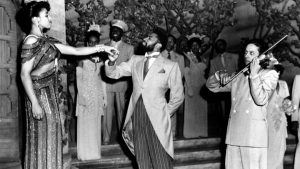John McWhorter in The Atlantic:

The Nation recently published a poem in which a homeless narrator speaks a complex, nuanced variety of English with a long and interesting history.
The variety of English is Black English, and the poet is Anders Carlson-Wee, a white man. In the wake of the controversy, The Nation’s poetry editors have appended a kind of trigger warning to the poem calling its language “disparaging.” (They also apologized for its “ableist language;” the poem used the word “crippled.”) Carlson-Wee has dutifully, and perhaps wisely, apologized that “treading anywhere close to blackface is horrifying to me” and declared that the poem “didn’t work.”
However, I suspect that many are quietly wondering just what Carlson-Wee did that was so wrong—and they should.
The primary source of offense, in a poem only 14 lines long, is passages such as this, in a work designed to highlight and sympathize with the plight of homeless people: “It’s about who they believe they is. You hardly even there.” The protagonist is referring to the condescending attitudes of white passersby who give her change. Yet Roxane Gay, for example, directs white writers to “know your lane,” and not depict the dialect.
More here.
